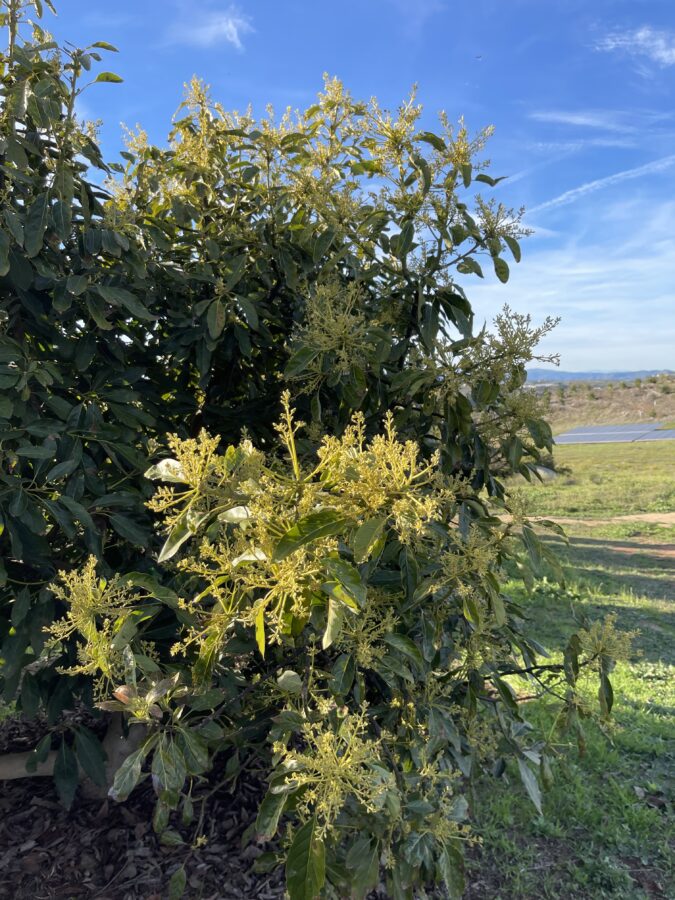
Springtime: When the Trees Begin to Bloom
Last weekend we had beautiful warm, sunny weather. In the springtime, I love to tour our avocado groves, just to see if there are any trees in bloom and to enjoy the gorgeous views.
This is the time of year when we begin to find blossoms in the avocado trees. Some are just “off blooms” caused by the weather or the health of the individual tree. Some trees are blooming because their variety is earlier than most. For example, the Gems and Mexicolas are already pushing out flowers while most of the grove beginning to bud. We usually expect most of the bloom to begin in later February and continue into March and April, when the avocado groves will appear to have mounds of light green froth replacing the foliage, accompanied by the buzzing of thousands of bees. In fact, the flowering of the trees causes the leaves to droop sometimes, as the tree gives all it’s energy to producing the flowers that will become new baby avocados.
Finding the Tiny Star Flowers and Baby Avocados
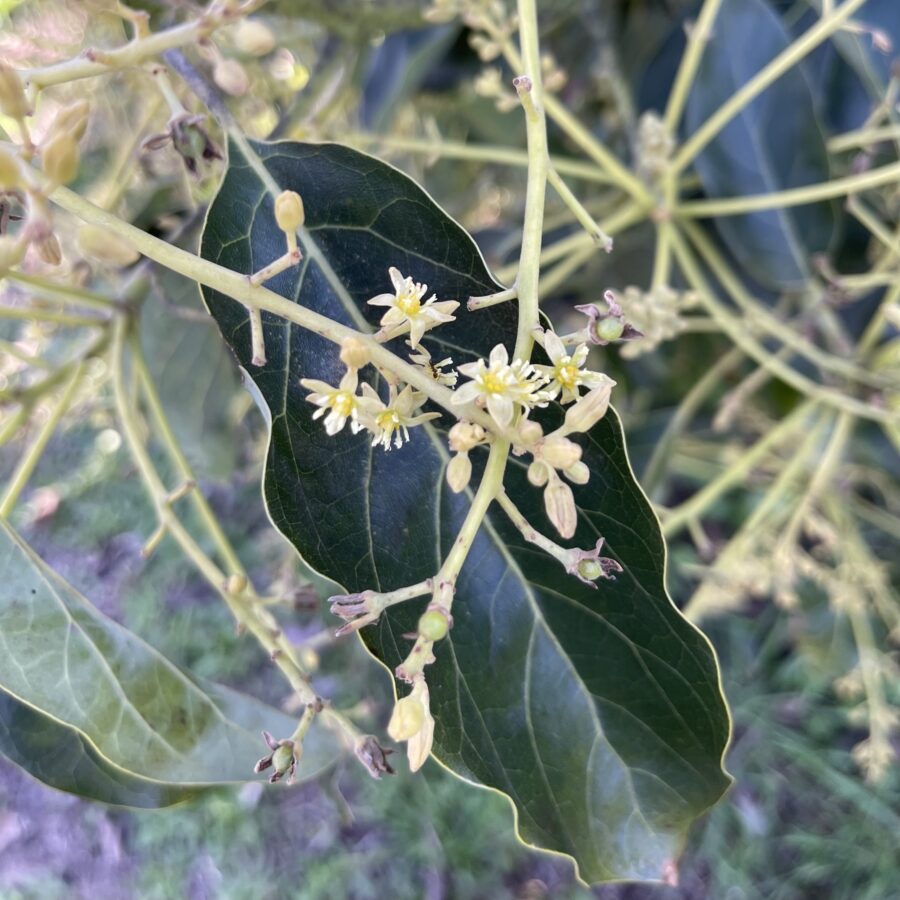
Do you see the tiny green orbs just below the flowers? Those are the tiniest baby avocados! They will grow, quickly becoming the size of olives and then plums, and finally they will be heavy enough to hang on long dangly stems for most of the next year, sizing up and developing the oil content that will allow them to be edible fruit. These babies begin growing when last year’s avocados are almost ready for harvest, so there are actually two crops of fruit on the tree at the same time! The trees require plenty of water and nutrients to do this important work.
Touring the Avocado Groves


Our dog Leia loves to ride around with me when I go out to tour the avocado groves. We enjoy the expansive views, and drive around the reservoir looking for ducks and turtles. Leia leaves the RTV to leap through the wild grasses, bounding across the fields, and then jumps back up on the seat with her muddy paws as we head for home.
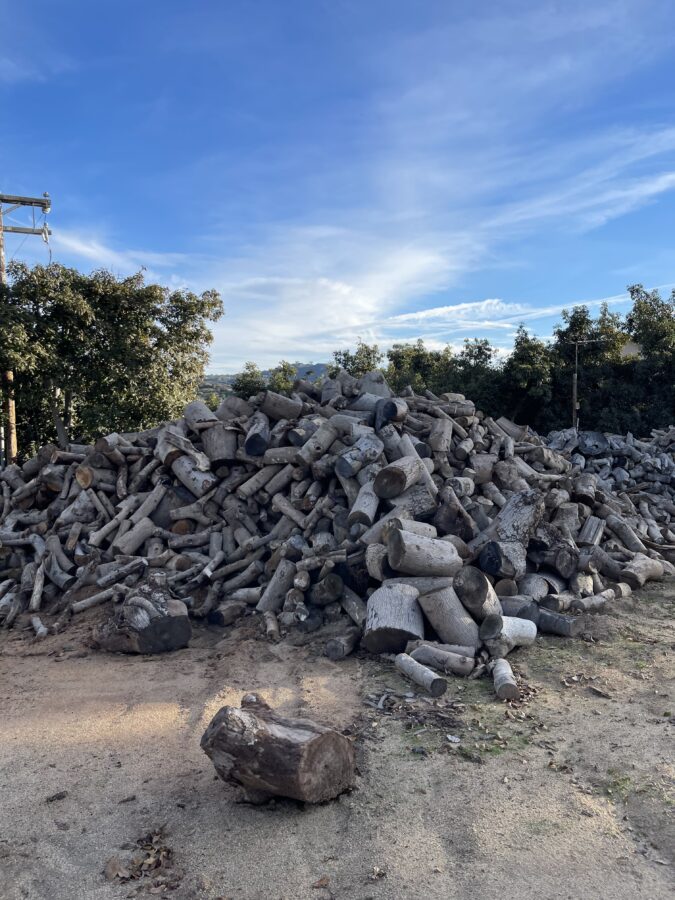
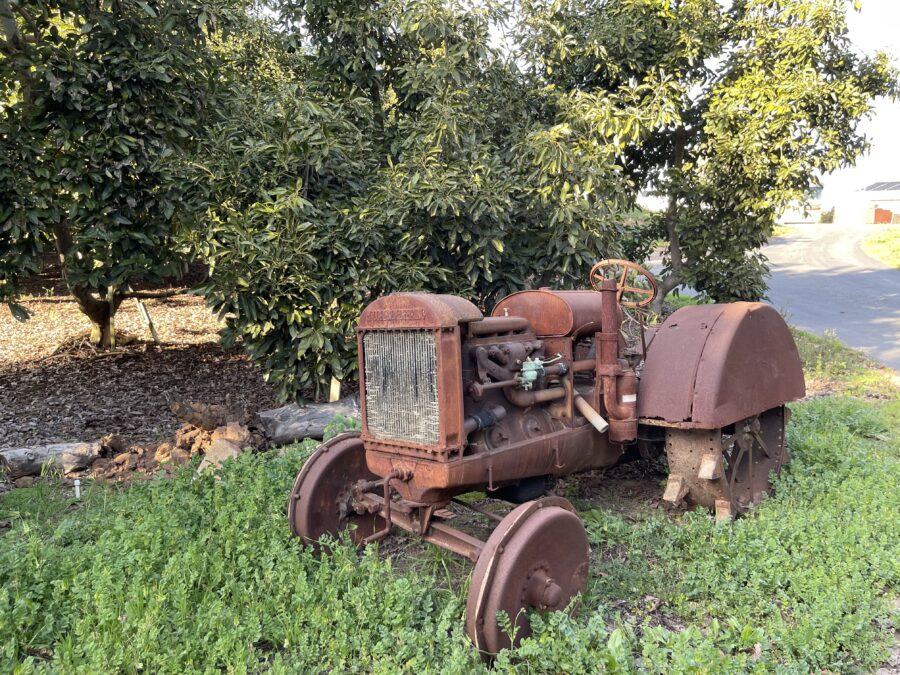
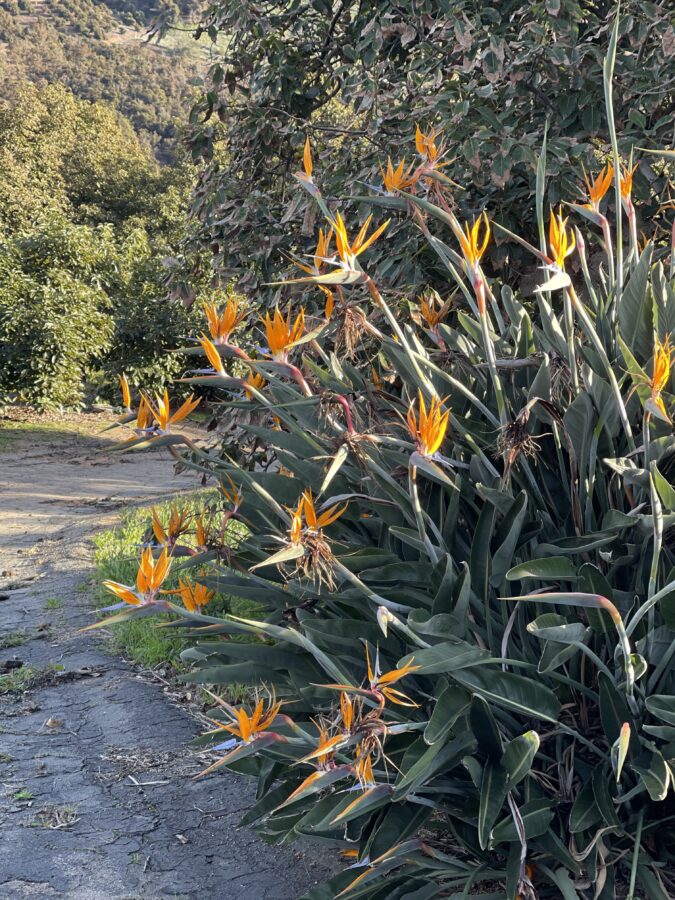
We drive by the piles of firewood that are left after cutting down older less-productive trees. A few old tractors remind us of the previous generations of farmers in our family, who grew different crops all over Southern California, before endless tracts of houses replaced the farms near the coast. Bird of Paradise flowers are glowing in the late afternoon sun.
Gorgeous Spring Sunsets
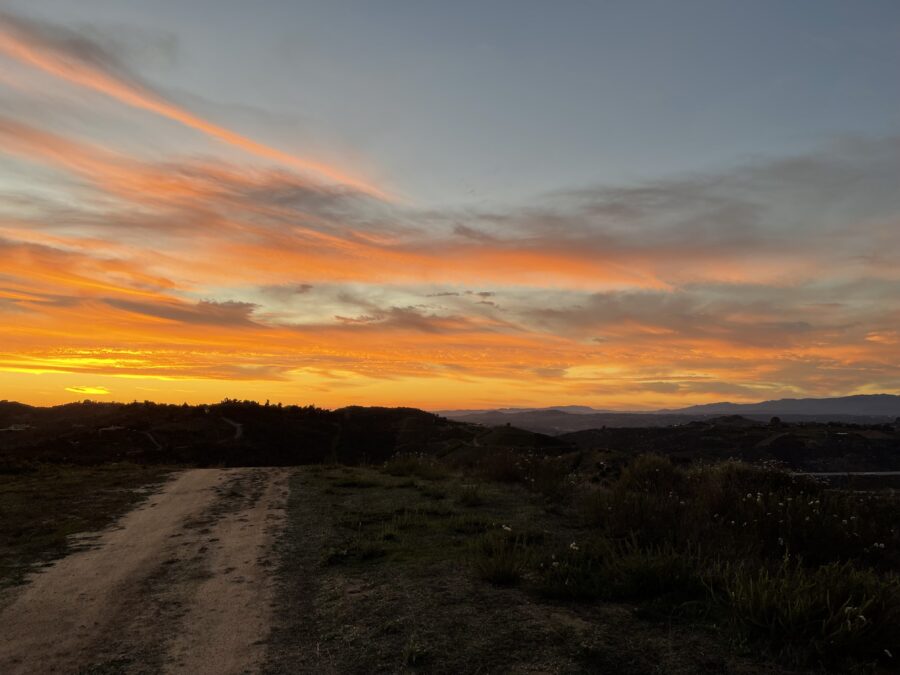
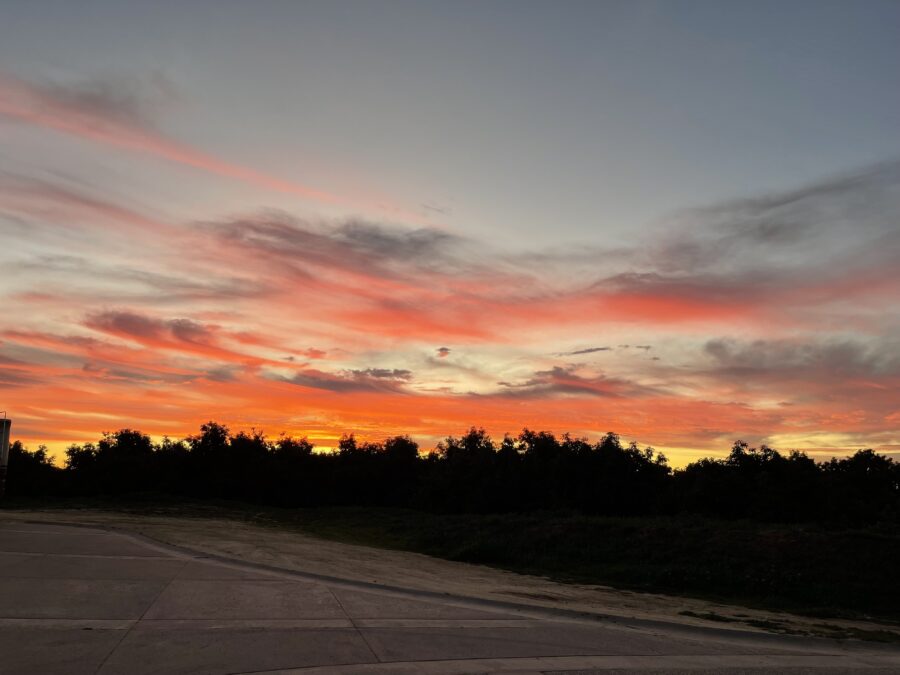
After several warm sunny days, a storm is approaching our area. Beautiful sunsets and sunrises precede the rains. Will the storms bring heavy winds? If so, our crops could be in danger of being knocked to the ground. Will the rains cause damaging erosion to the roads and the irrigation system? Will the trees with shallow roots fall over if the soil is saturated and soft? How much rain will we get? Enough to leach the salts from the soil to help the trees access the nutrients? Or will the rain leach nitrogen from the soil and cause the leaves of the trees to turn yellow? Lots of groves have noticed the yellow spotted leaves caused by the lack of nitrogen this year because of the rains. See the photo below if you have trees that you’re wondering about.
The one constant in farming is uncertainty. Usually avocado growers love the rain, as it saves us the cost of irrigating for a little while. There are other reasons to love the rain too. For now, we’re hoping for the best! Gentle rains, not much wind, and a beautiful spring season with a good set of fruit for next year. I’ll be going out for another tour of the avocado groves after the rains, and hopefully I’ll have good news!
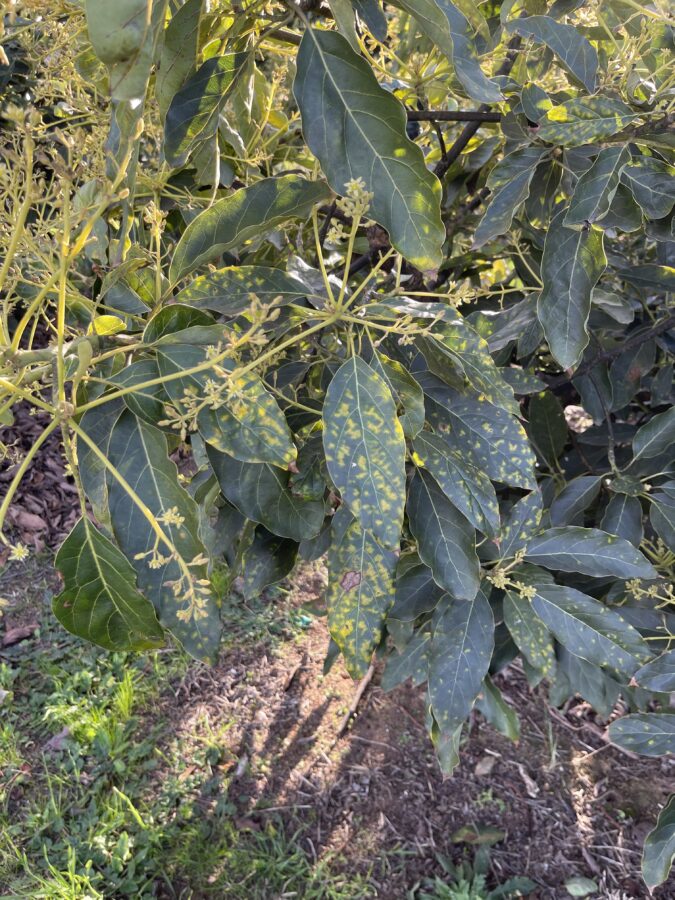



12 Comments
Leave a reply →